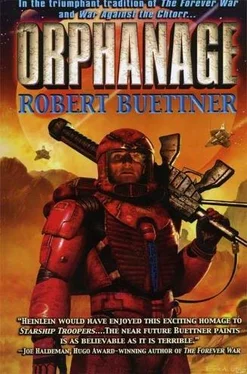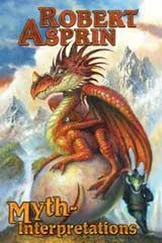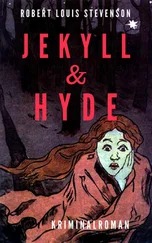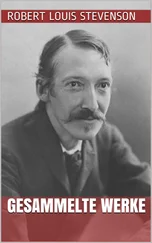Robert Buettner - Orphanage
Здесь есть возможность читать онлайн «Robert Buettner - Orphanage» весь текст электронной книги совершенно бесплатно (целиком полную версию без сокращений). В некоторых случаях можно слушать аудио, скачать через торрент в формате fb2 и присутствует краткое содержание. Жанр: Боевая фантастика, на английском языке. Описание произведения, (предисловие) а так же отзывы посетителей доступны на портале библиотеки ЛибКат.
- Название:Orphanage
- Автор:
- Жанр:
- Год:неизвестен
- ISBN:нет данных
- Рейтинг книги:4 / 5. Голосов: 1
-
Избранное:Добавить в избранное
- Отзывы:
-
Ваша оценка:
- 80
- 1
- 2
- 3
- 4
- 5
Orphanage: краткое содержание, описание и аннотация
Предлагаем к чтению аннотацию, описание, краткое содержание или предисловие (зависит от того, что написал сам автор книги «Orphanage»). Если вы не нашли необходимую информацию о книге — напишите в комментариях, мы постараемся отыскать её.
Orphanage — читать онлайн бесплатно полную книгу (весь текст) целиком
Ниже представлен текст книги, разбитый по страницам. Система сохранения места последней прочитанной страницы, позволяет с удобством читать онлайн бесплатно книгу «Orphanage», без необходимости каждый раз заново искать на чём Вы остановились. Поставьте закладку, и сможете в любой момент перейти на страницу, на которой закончили чтение.
Интервал:
Закладка:
Captain Jacowicz, the company commander, mounted the room’s foot-high stage. There was the usual preclass bullshit as each platoon demonstrated bloodthirsty esprit de corps by chanting some doggerel about how much more excellent they were than every other platoon in the entire army. Third Platoon growled “WETSU! WETSU!” Short for “We Eat This Shit Up.” Then silence.
“Take seats !”
A brief symphony of metal chair legs scraping floorboards as we sat was followed by more silence. Hands folded, we looked up. Not a few fingertips brushed the rifle in front of them.
“Gentlemen,” Jacowicz began by addressing our cluster of teenage nose-pickers with that obvious he. “The war is going well.” Jacowicz’s tight lips said it was going poorly, indeed. Not that any of us had time or spirit to care. Life’s victories were squeezing out an extra sleep hour or a hot shower.
Without personal communicators, not even TVs, we knew about the outside world only what the guys who got mail passed along. The word was the converted-shuttle Interceptors were flying and knocking aside Projectiles, but still imperfectly. Imperfectly meant people were dying by the millions. I wondered if Metzger was among the pilots. And if Projectiles shot back.
Captain Jacowicz cleared his throat. We rarely saw him, except watching training from a distance, arms folded. He was hardly older than we were. A West Pointer, they said. His fatigues were even more razor-creased than Ord’s, if that was possible, his chin shaved even shinier. He wore no Combat Infantryman’s Badge. Even among the drills, only Ord had seen combat.
He had spoken to us in this classroom once before, lecturing that the Geneva Convention banned mistreating prisoners. Considering any potential enemy prisoner was half a billion miles away, I slept through most of it.
“Today your training enters a dangerous and challenging phase. This company has never experienced a range casualty. With care and attention, that is a record we will all preserve. Lights!” He stood aside as the lights dimmed and a flatscreen hushed down out of the ceiling. The title of today’s after-lunch epic faded in on-screen, “Introduction to Firearm Safety.”
Nobody could train on six hours of sleep that were really four. So everybody napped every time the lights dropped for a holo or a video. The drills had to know it. And since the Russian coal had arrived, the classroom buildings were sweatboxes. Lunch stew rolled in my stomach like a bowling ball. My eyelids drooped.
Our uniforms were so old-fashioned that they had pin-on collar brass. The stay-awake trick was as soon as you felt drowsy you undid the pin, reversed it, and held it under your chin with a thumb. When you drifted off, your head nodded and you got a wake-up call and lost only a little blood. It was a stupid ritual, but you had to do it because there was hell to pay if a drill caught you asleep.
I was fumbling to get my collar pin pointed against my chin. I swear I was.
Crash.
My head rested on the jigsaw-puzzle rifle cloth in a drool puddle. My M-16 spun on the floor.
“Soldier!” The lights flashed on, and the captain stood over me.
I popped to attention. “Sir!”
“Firearm safety bores you?”
“Sir, no sir!”
“You disrespect your weapon?”
“Sir, no sir!”
“Then pick it up!”
I did. Godammit. Everybody slept during the flicks.
“Sergeant Ord!” Jacowicz snapped.
The Great One appeared alongside, a statue at attention.
“Trainee,” the captain peered at my name patch, ”Wander is Third Platoon?“
“Yes, sir.”
I supposed there was nothing a drill sergeant liked better than having one of his own fuck up in front of the commanding officer.
“See that Third Platoon learns to appreciate its weapons.” Captain Jacowicz spun an about-face that did West Point proud, remounted the stage, and the flick resumed. I stayed awake.
That night after chow we broke down, cleaned, and reassembled our M-16s six times before we returned them to the company armorer. In addition to policing barracks, shining boots, and the usual bullshit. Drill Sergeant Ord left us four glorious sleep hours by generously extending lights until midnight.
Lights went out, Ord closed his office door, and disappeared. My forty-nine roommates lay silent until somebody hissed, “Wander, you fuckhead! You should be shot!”
I waited in vain for the expression of an opposing view.
Four hours from now we would wake and march out to the range, where every one of these guys would be armed with an assault rifle loaded with live ammunition.
Chapter Six
The next day began ordinarily enough.
“The girl I marry she must be…” Trainee Sparrow stood six-six and weighed 160 pounds without his pack. But Ord had designated him to count cadence because he sang like the black choirboy he had been.
“Airborne, Ranger, Infantry!” Third Platoon sang back as we marched rangeward, rifles slung, in the gray morning. In the name of equal misery, women had served in the combat branches—Infantry, Armor, Field Artillery—for decades, even though they trained separately. But still the lyric seemed mythic. Actually, women seemed mythic.
I envisioned Metzger lounging poolside in trunks and a star pilot’s scarf while twin blondes—no, one blonde, one brunette—ministered to his blistered trigger finger, suffered while he zoomed through outer space, saving millions of lives weekly. Here at Indiantown Gap, my idea of living large was seconds on something the army called apple cobbler.
It was what you’d call a nice day since the war started. The haze was almost bright, and it was a windless thirty degrees or so. Then something in the air went funny.
Of course, it was overpressure. As everybody knows now, a Projectile is so big that it piles air in front of it when it plows into the atmosphere at thirty thousand miles per hour.
Walter spun his head toward me, brow knit beneath his Kevlar pot. “Do you feel—”
We saw it before we heard it. I never want to again.
Sun-bright light boiled in a streak that seemed as wide as the sky and a hundred feet above us. It was actually twenty miles up. The noise and shock wave as it roared by knocked us all flat. Then the impact-flash bloom blinded me like an old film-camera flashbulb, even half a state away.
The ground rolled underneath us, like a bedsheet snapped over a mattress, then we all tumbled and fell back onto the road. It knocked the wind out of me, and I saw stars.
Somebody said, “Holy shit!”
Then the blast wind swept across us, whipping house-tall, bare trees like goldenrod straw in a breeze.
For too long nobody moved, just lay and breathed.
Ord was first up. It was the first time I’d seen him even faintly impressed. His eyes seemed wide, and he stood close enough that I heard him whisper, “Holy Mother of God!”
He dusted his uniform off, straightened his hat, and called out, “On your feet! Third Platoon, sound off!”
Everybody was up, rattling off names by squad. Nobody admitted being hurt. He had us marching before we could think.
We all stared west, toward the impact flash.
Somebody whispered, “What’s over there?”
“Pittsburgh. Was.”
I teared up, and my throat swelled.
I’d have thought Ord would call off training. We had just witnessed people die. Stunningly. Horribly. Massively. But he kept marching like something else mattered. Nobody sang the rest of the way to the range.
The M-16 is no marksman’s weapon. It’s short-barreled. The bullet wobbles, the better to tear through flesh once it strikes. The bullet is small, so a GI can carry more ammunition. But those characteristics reduce accuracy. At ranges beyond 300 meters without telescopic sights you might as well throw rocks at the target. Which didn’t stop the army in its wisdom from setting the farthest rank of range targets at Indiantown Gap out at 460 meters.
Читать дальшеИнтервал:
Закладка:
Похожие книги на «Orphanage»
Представляем Вашему вниманию похожие книги на «Orphanage» списком для выбора. Мы отобрали схожую по названию и смыслу литературу в надежде предоставить читателям больше вариантов отыскать новые, интересные, ещё непрочитанные произведения.
Обсуждение, отзывы о книге «Orphanage» и просто собственные мнения читателей. Оставьте ваши комментарии, напишите, что Вы думаете о произведении, его смысле или главных героях. Укажите что конкретно понравилось, а что нет, и почему Вы так считаете.












